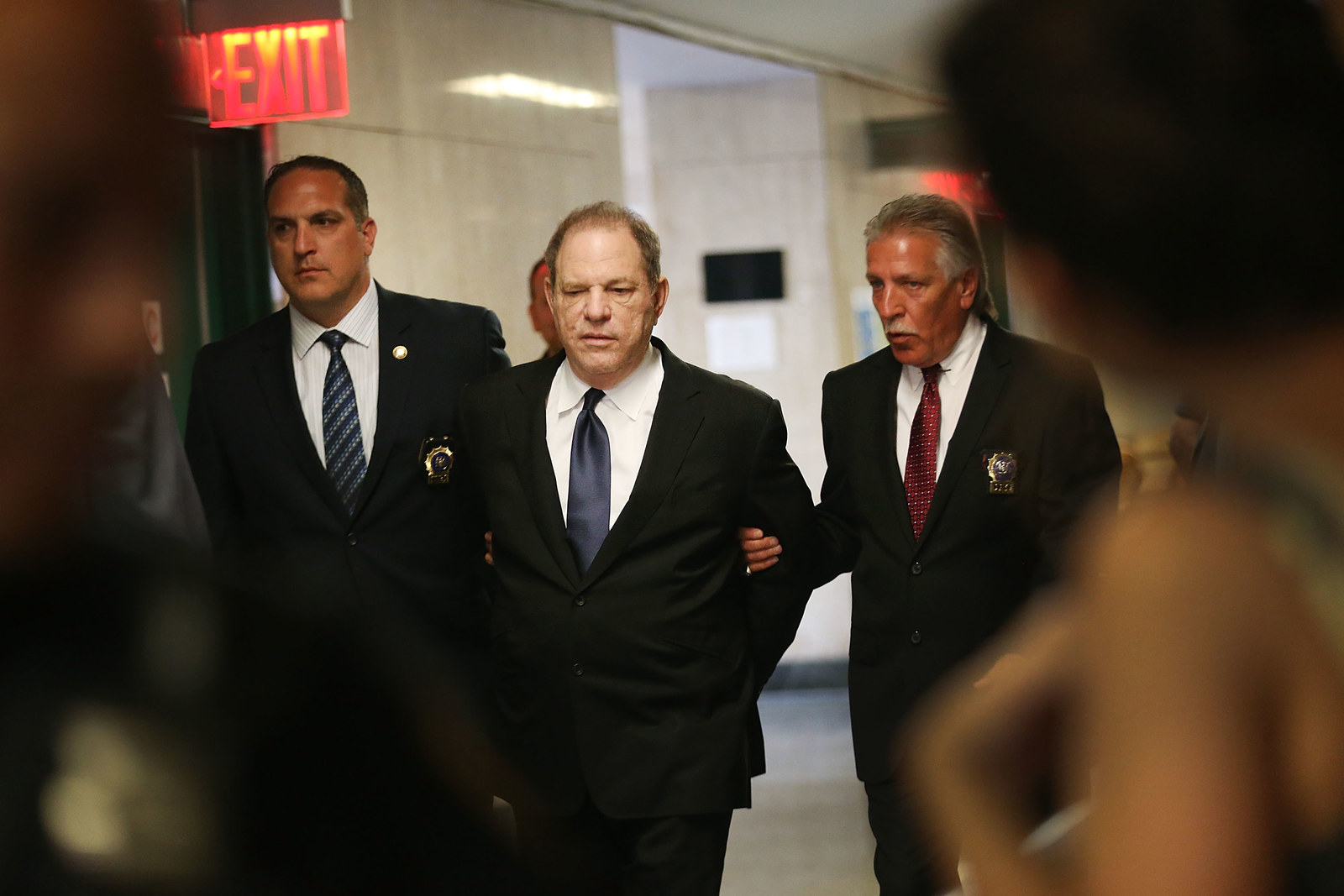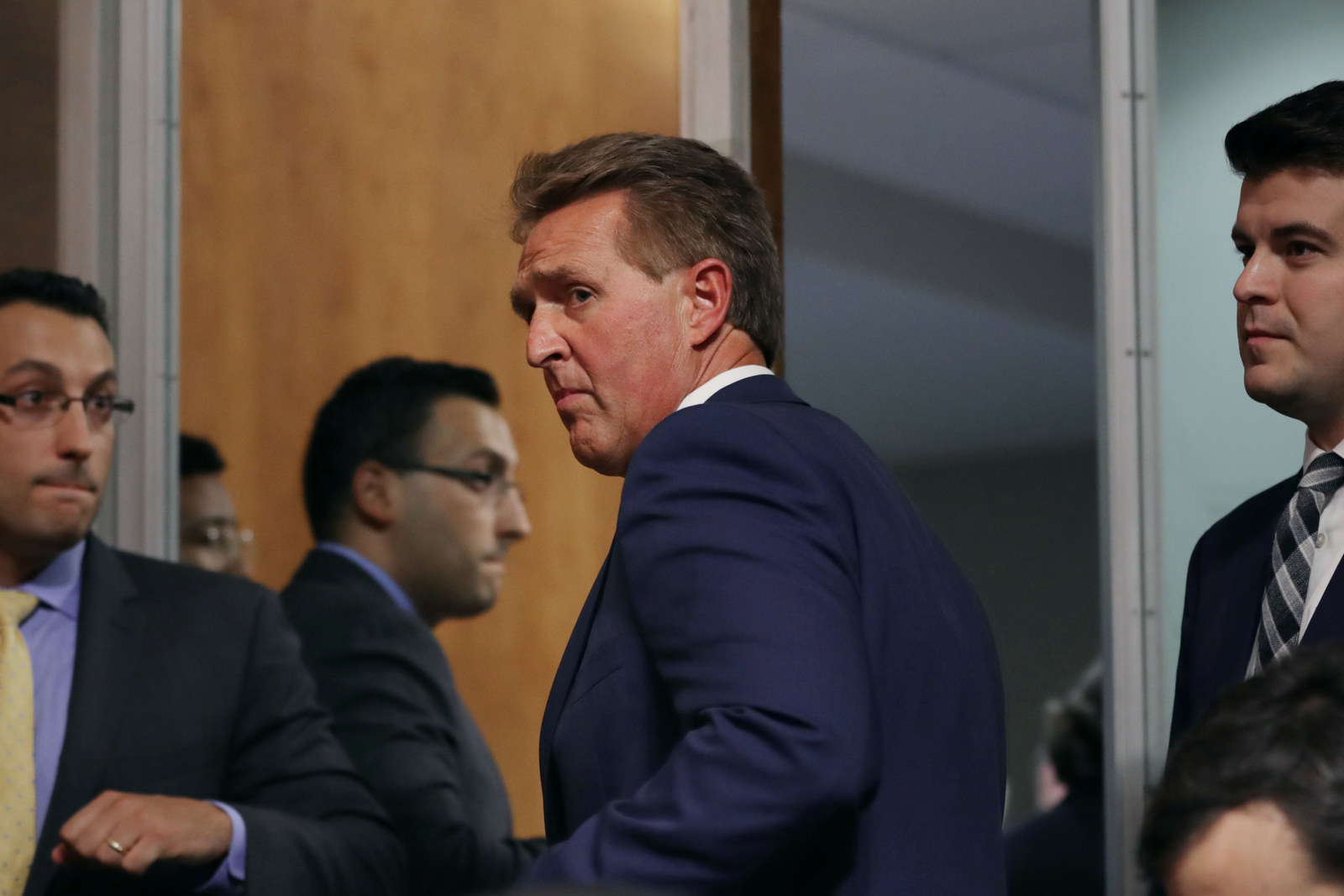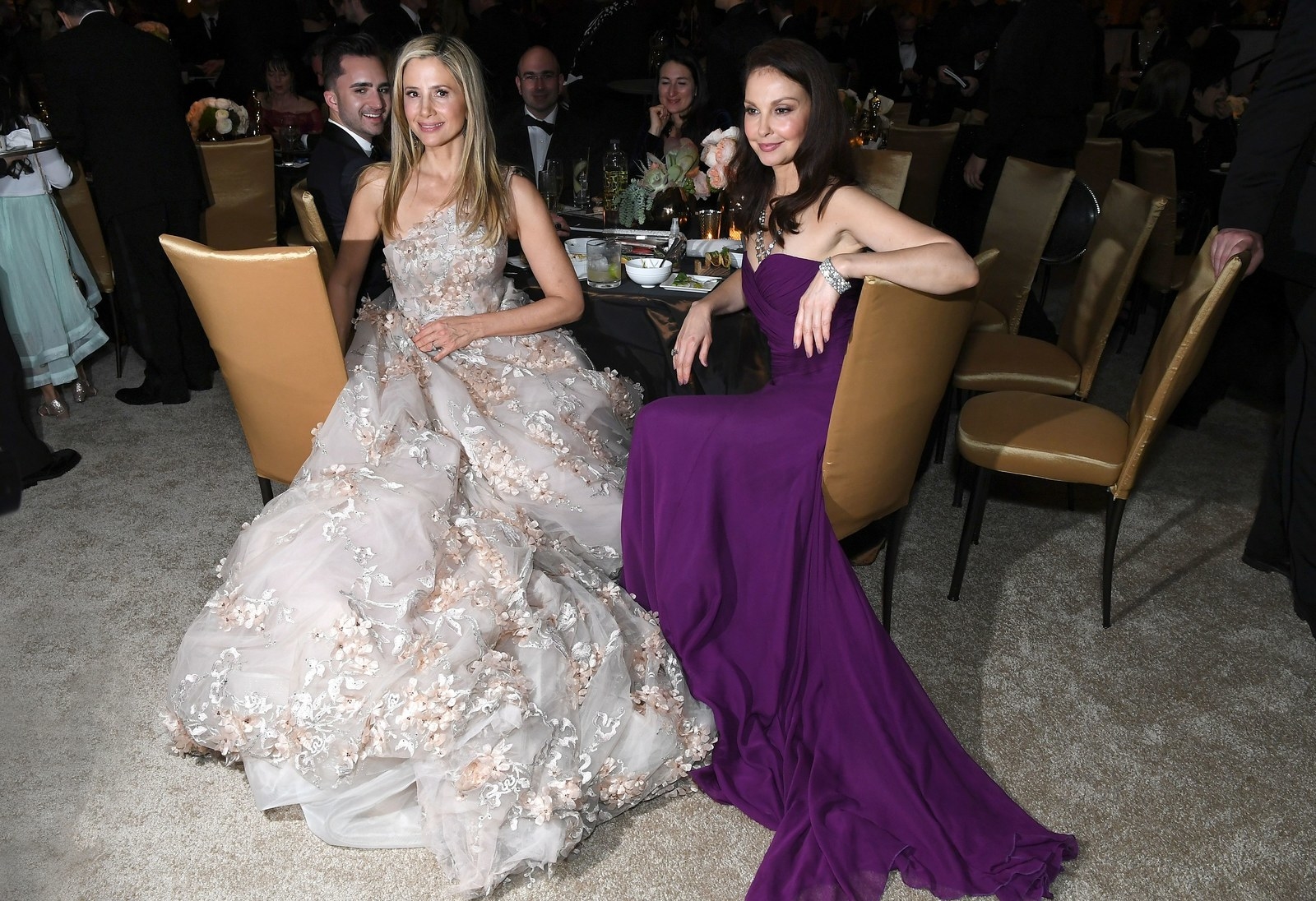
Part of #WhatNow: stories from BuzzFeed News about how far #MeToo has gone and where we go from here. Read more here.
In July 2016, after I’d been thwarted in my efforts to get anyone to come forward on the record about Harvey Weinstein’s rumored sexual predations, one of my editors had an idea for how I could approach the story from a different angle. What if I wrote something, he suggested, that showed that nondisclosure agreements are unenforceable when they cover up a crime? That would be something we could send to women we thought had signed such agreements with Weinstein to assure them they would be safe.
So I set about trying to talk to as many lawyers as I could, never using Weinstein’s name, but describing in vague terms a powerful man in the entertainment business who we suspected had reached multiple settlements with women that covered up sexual harassment and assault.
Unfortunately, all the lawyers I interviewed told me our assumption was wrong. That yes, certain states — California was one — were more paternalistic (in the legal sense) about protecting people who had signed agreements that went against their own interests. But that publishing an inflammatory story — even one that was provably true — in which the source had signed a nondisclosure agreement did not prevent lawsuits.
One entertainment lawyer who was tapped into the New York film world guessed I was fishing around for a Weinstein investigation, and became dire in his predictions about the outcome of such a story. Too afraid for either of us to speak Weinstein’s name, he used a nonspecific pronoun: “They would come after you with everything they have. Look what’s going down with Gawker,” he said, citing the soon-to-be-shuttered news site that had been destroyed by a vindictive rich person. He then said that this person, despite his behavior being “well known” and “an open secret,” would likely sue BuzzFeed News, any of our sources, and me into bankruptcy.
Portentously, he then added, “They could make your life a living hell, and destroy you, even if you end up being right.”
To revisit that interview 27 months later is to realize how much — and how rapidly — things have changed. I was one of many reporters over the years who tried and failed to investigate Harvey Weinstein; it seemed impossible, and unreportable.

And then, suddenly, it wasn’t. Within a week of each other, the New York Times and the New Yorker published major investigations of Weinstein, detailing decades of allegations of sexual harassment, assault, and yes, settlements with women. Their reporting was meticulous and bulletproof, and would go on to win the Pulitzer Prize — they had gotten a number of survivors to go on the record. The formerly indomitable Weinstein was quickly fired from his own company, his wife left him, and he went into hiding (though he would not shut up for months). He is currently awaiting trial in New York City on a number of rape charges. And he hasn’t sued anyone. How could he? His accusers are legion.
Weinstein’s destruction led to a year of giant-slaying, as the #MeToo movement became a national phenomenon and predators in a number of industries were unmasked. The entertainment industry — in which abusive behavior has always been generally overlooked, if not rewarded — has provided the largest number of men to smoke out, but the reckoning has also come for men in media, academia, politics, books, and the restaurant world. Other spheres of life remain untouched, like abusive marriages.
“A year later, we’re contending with questions about how to follow through on and grapple with the repercussions of the #MeToo era.”
Starting this month, BuzzFeed News is asking the question What now? through a series spanning our national, arts and entertainment, culture, and breaking news teams. A year later, we’re contending with questions about how to follow through on and grapple with the repercussions of the #MeToo era, and investigating which victims have been left behind. Some predatory men have attempted to launch comebacks, there have been firings at every level of power in Hollywood, and there is hand-wringing about whether #MeToo has gone too far. The hand-wringers are right to be alarmed: Things will never be the same.
It’s been a year of awe-inspiring spectacle, as American culture appeared to readjust — even a little — to be more inclined to believe women’s accusations, and less enthralled by powerful men who also might be criminals. We’ll never know if this shift made the jury in the retrial of Bill Cosby more receptive to Andrea Constand’s story that the comedian had drugged and raped her in 2004. And we’ll also never know if the advancements made by the #MeToo movement caused the trial judge to allow five women to testify to support Constand’s story with their own. Those factors may be inexpressible, and impossible to calculate. What is a fact, though, is that Bill Cosby, a colossus and an icon, will be in prison for 3 to 10 years. And he was brought down first not by law enforcement, but by viral stories that created a safer environment for dozens of new women to come forward. The deluge made it inconceivable for the courts to ignore Cosby’s crimes, even after all these years. He won’t be the last man to be convicted by this brand new world.
These are the things I’ve had to keep in mind as I watched the harrowing Brett Kavanaugh hearings and wondered whether anything has actually changed. But I’m old enough to remember the horrors Anita Hill was subjected to at the Clarence Thomas confirmation in 1991, and at least — at the very least — Christine Blasey Ford wasn't accused of erotomania by the Republicans, nor has Orrin Hatch (still on the committee!) waved around a copy of The Exorcist to accuse Ford of stealing one of her harassment stories from a book. (Instead, Hatch said Ford was “attractive,” “a nice person,” and “pleasing.”)
One crucial moment in the Kavanaugh drama was Ana Maria Archila and Maria Gallagher’s Sept. 28 elevator confrontation with Jeff Flake. They seemingly helped change Flake’s mind about taking the path of least resistance and voting for Kavanaugh to pass through the Senate committee on his way to confirmation. Archila and Gallagher — self-identified survivors of sexual assault — yelled at Flake as their voices shook with rage and tears, blocking the elevator doors, demanding answers from him, as he could barely look them in the eyes, shame-faced. The confrontation reminded me of ACT UP’s direct action tactics in the late 1980s and early 1990s, when AIDS activists targeted the institutions and politicians who were blocking drug treatments for HIV and preventing safer sex education. ACT UP protested with embattled fury because for LGBT people and people with AIDS, it was a life-and-death situation.

There’s a sense of that urgency now, too, when every day feels like a crisis. Women are weaponizing their anger during this awakening, and, as Rebecca Traister has written, “have been in no mood to dress their fury up as anything other than raw and burning rage.” After generations of abuse, harassment, and assault, there have been too many losses to do anything other than push forward, even when it’s terrifying.
Help us expose more secrets powerful people don't want told. Become a BuzzFeed News supporter.
We also need to continue to look at the past to learn how we got to this point. That sort of work helps recalibrate the tricky gray areas of sexual power dynamics in social situations, in dating situations, and yes, at work. Some of the most fascinating moments during the reckoning in entertainment have been these excavations, like Molly Ringwald’s reevaluation of her John Hughes past through the lens of #MeToo, and Linda Bloodworth Thomason blasting Leslie Moonves for devaluing her work and derailing her career. In the conclusion of her Hollywood Reporter essay, Bloodworth Thomason wrote, “And as for you, Mr. Moonves, in spite of the fact that I was raised to be a proper Southern female, and with your acknowledgement that I have never, in my life, spoken a single cross word to you, despite the way you treated me, may I simply say, channeling my finest Julia Sugarbaker delivery: ‘Go fuck yourself!’”
“There is rot everywhere, and the best way for it to be excised is to put it all out there.”
Go fuck yourself, indeed: There is rot everywhere, and the best way for it to be excised is to put it all out there. These revelations about the past are not an effect of the #MeToo movement — they are the #MeToo movement. The women whose careers were insidiously impeded by harassers and abusers will never get that time back. If Ashley Judd and Mira Sorvino expressed aloud over the years that they had hit roadblocks because they hadn’t capitulated to Harvey Weinstein’s sexual desire for them, I imagine they might have sounded crazy. (When Rose McGowan told me in 2015 she had been blacklisted from movies, not naming Weinstein at the time, I believed her, but I doubt everyone would have — and now we know she was right.)
Even in the past year, after the Weinstein investigations had come out that revealed his professional grudges and love of revenge, it meant something for Peter Jackson to say out loud that, yes, Weinstein had banned Judd and Sorvino when Jackson was originally casting Lord of the Rings (when Miramax was still involved in the movie). Bad Santa director Terry Zwigoff also confirmed Sorvino’s blackballing for that movie, and apologized to her on Twitter. Men speaking up to support women will matter until we get to the day when women don’t sound like paranoid hysterics when complaining about real injustices. In his refutations of Jackson and Zwigoff, it was, in fact, Weinstein who sounded crazy — which is as it should be. That is probably cold comfort for any actors who were tortured by Weinstein, but it is a sliver of redemption — and proof that male allies are crucial to the #MeToo movement as well.

Not every exposé is going to result in a victory. If Ryan Seacrest regains his red carpet eminence, I’m going to be noting everyone who stops to chat with him on camera, because I believe the woman who accused him, even if his many employers don’t. I have also marveled that Chris Hardwick got his various hosting jobs back after leaking texts between him and his ex-girlfriend to TMZ: That act alone seems fireable to me. Separately, I can think of several men in entertainment, a few of whom are still working at high levels of power, who have not yet come under scrutiny. Also, Donald Trump, who said he grabs women by the pussy, and they let you do that when you’re famous, remains the president of the United States. There is a lot of work to be done.
It’s also going to require work to come together to figure out whether there is a road back for any of the accused men who have become pariahs. When Louis C.K. performed a surprise set at New York’s Comedy Cellar in late August, he was greeted by an enthusiastic crowd, but the resulting fury on social media felt painful, reopening wounds that had barely started to heal. (He did another one on Sunday, also at the Comedy Cellar, also to a “warm reception,” but with two people walking out for refunds this time.) For a man who had admitted to surprising women by masturbating in front of them without their consent to be like Surprise! I’m testing new material! is a questionable choice (and by “questionable,” I mean “bad”). But in doing so, C.K. also became a symbol of every man who has been reckoned who might feel entitled to get his career back. More followed: A few weeks later, WNYC’s John Hockenberry and the former Canadian radio star Jian Ghomeshi wrote essays about their plights in Harper’s and the New York Review of Books, respectively. In his act, C.K. simply ignored the accusations against him (even if he did tell an ill-chosen rape whistle joke), but it turns out that’s infinitely preferable to Hockenberry’s and Ghomeshi’s thousands of words of delusional whining.
“It’s also going to require work to come together to figure out whether there is a road back for any of the accused men who have become pariahs.”
So we now have a few examples of wrongheaded comebacks, enough to say, For god’s sake, no, not that way! Whether we have any good ones yet depends on your view of Casey Affleck’s apology (an examination of his behavior on the set of I’m Still Here, which resulted in him settling two civil suits). Affleck talked about listening, stopping being defensive, and “trying to find my own culpability,” which felt sincere and thoughtful to me (but I understand if it didn’t to you).
Even more recently, there were Matthew Weiner’s circuitous denials of sexual harassment to Vanity Fair, but also he admitted he had been a “tough boss” during Mad Men, and ended with a very Real Housewives–y apology. “If I have wronged somebody, yeah, I would like to apologize,” Weiner told Joy Press. “In a general sense. I am that kind of person. It makes me sad to cause other people unhappiness or if they even perceive it that way.” He was finicky about the words he used, questioning Press on whether he had said “hedging” (he had, she confirmed), and made his apology about him and his sadness about harming other people: if, that is, he had done something wrong.
Everyone’s mileage is going to vary on these very real, very important questions about redemption. That all of these men have something to promote — or, in the case of C.K., Ghomeshi, and Hockenberry, something to prove — means no one is being selfless here. There are only two men — Weinstein and Kevin Spacey — who I’m positive we’ll never see accepted into public life again, so egregious are the allegations against them. As for everyone else, from C.K. and Brett Ratner to John Lasseter and Les Moonves, everything in history leading to this point suggests that people easily forget details as the years pass. Hell, James Franco — who was accused of sexually inappropriate behavior, particularly with students at his film school, which he has denied — is on HBO’s The Deuce right now, and no one seems to care!
Everything feels like a swirling mess right now; some of it is bad. We’re at the very beginning of dismantling entrenched power structures, and it’s not going to be easy — there will be setbacks. But it’s actually working this time. And things are never going back to the way they were. ●

A year after #MeToo became a household name, BuzzFeed News is bringing you stories about how far we’ve come, who’s been left out, and where we go from here. Read more here.
